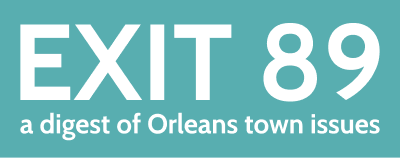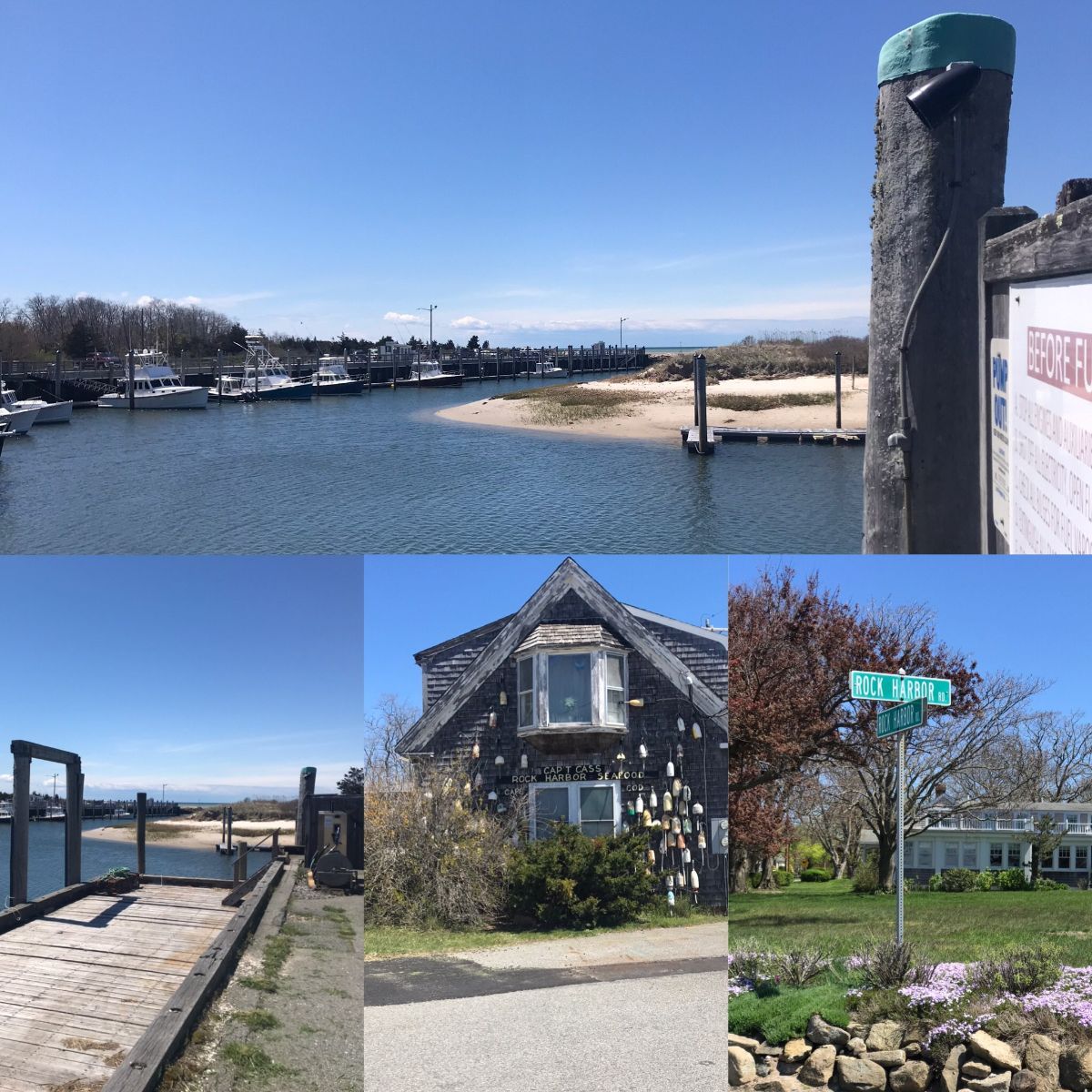The Annual Town Meeting will be held at Nauset Middle School Athletic Field on Saturday, May 22 at 10 am.
Underwater at Rock Harbor + The Transfer Station
At Town Meeting last fall, voters approved the establishment of five new enterprise funds to track the individual revenues and expenses of five services offered by the town. An explanation of enterprise fund history, accounting, and terminology can be found on pages 14–16 of the Town Meeting Warrant.
Here’s a quicker explanation: By pulling a town operation from the general budget and showing its revenues and expenses, enterprise fund accounting provides greater fiscal transparency for five town services that are used by visitors and non-residents, as well as resident taxpayers. They are:
Beaches
Moorings
Sewer operations
The Transfer Station
Rock Harbor boat basin
As their budgets in the Warrant show, for fiscal year 2022 (FY22), beaches and moorings will cover their own annual costs, not including debt service. The other three enterprise funds — sewer operations, the transfer station and Rock Harbor boat basin — will cost more to operate than they will bring in.
What does that mean for taxpayers?
Sewer operations are not yet generating revenue because the new system is still under construction. In FY22, one hundred percent of the $726,513 expense will be paid from the Wastewater Special Purpose Stabilization Fund, which is funded by the town’s short-term rental tax created by town meeting in 2019. No additional taxpayer subsidy will be required.
The transfer station is projected to fall short by $411,853 in FY22, an amount that does not include the annual debt service of $246,667.
Rock Harbor is projected to cost Orleans taxpayers $76,507 in the coming fiscal year — not including debt service on the $2 million repair of the bulkhead approved in 2016, or the $1.3 million upgrade to the boat ramp and parking approved in 2018.
The shortfalls for both of these enterprises will be subsidized by the town's operating budget and thus by taxpayers.
Articles 9—13, found on pages 30–40 of the Warrant, ask us to approve the FY22 budgets for these services — including proposed user fee increases for non-resident and daily beach parking, oversand vehicle (OSV) access, the transfer station, Rock Harbor slips, and mooring permits. Most of the increases are fairly modest — $25 or less — with the exception of the OSV access fees, which are proposed to increase by fifty percent or more.
The idea is to close the gap, over time, between costs and revenue.
But larger questions loom. Should Orleans residents subsidize services used by visitors and non-residents? And, should Orleans taxpayers subsidize services they do not necessarily use? Someone who lives alone is currently paying the same annual fee to use the transfer station as a household of six. Likewise, all Orleans taxpayers are currently subsidizing Rock Harbor, whether they use it or not.
The shift to enterprise fund accounting is intended to encourage this discussion, and to give us a way to design more thoughtful fee structures — ones that generate revenue for the town and perhaps eliminate the subsidies Orleans residents currently pay. In the case of the transfer station, we could shift to a fairer “pay as you throw” system, and non-residents could be charged higher fees than residents. At Rock Harbor, commercial fishing boats could be asked to pay higher fees for slips, and commercial fishing businesses not based in Orleans could pay even more. There could be parking fees as well; the working harbor and beautiful sunsets draw visitors year-round.
For a deeper dive into this subject, watch the Orleans Citizens Forum session on the five enterprise funds.
A vote to approve the enterprise fund budgets and fee increases is a way forward to the next round of conversations. The Select Board and Finance Committee gave unanimous support to the enterprise fund articles. A simple majority vote is required.
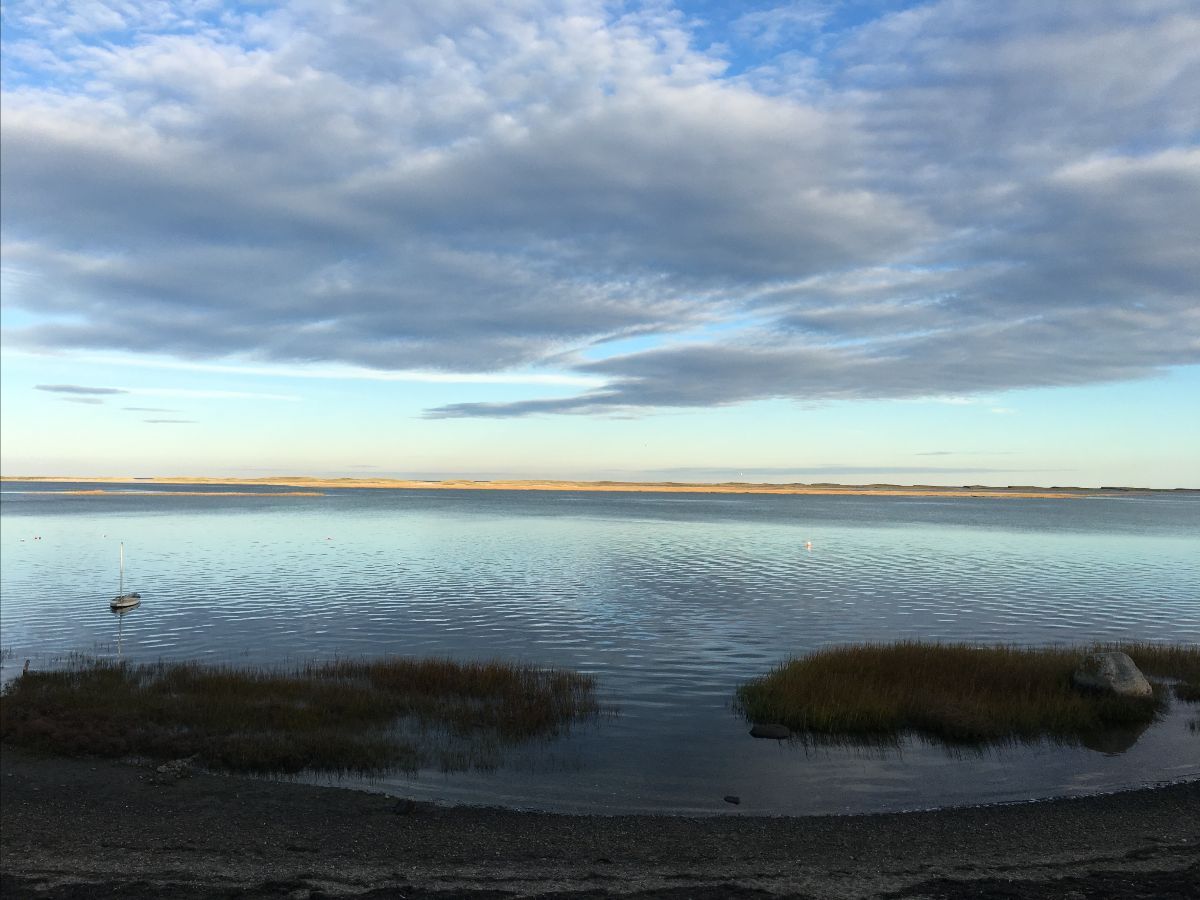
Dredging Nauset Estuary
Shoaling is the slow accumulation of sand, a natural process that can turn a small cove or harbor — in our case, Nauset Estuary — into a beach or marsh over time. As many boaters know, navigating the estuary, which was last dredged in 1924, is increasingly difficult and occasionally dangerous due to shoaling in the channel, and the resulting shallow water.
Goose Hummock and Nauset Marine, located on Town Cove, both report diminishing business due to the challenges of navigating the shoals. The impact is also felt by commercial fishing, charter boats, recreational boaters coming and going from the Orleans Town Pier and the Orleans Yacht Club, and — more importantly — by rescue operations aiding stranded vessels from Town Cove to Nauset Inlet.
Article 20 of the Warrant, found on page 69, asks for $160,000 to fund engineering design and permitting services for the Nauset Estuary Dredging Project, which, if approved, will create a 100-foot-wide channel behind the barrier beach, and 50-foot-wide channels elsewhere, removing some 73,000 cubic yards of sand and costing roughly $3.1 million over the next six years.
This project is surely one of the most complicated puzzles that Orleans has ever faced. It requires extensive communication and coordination with our neighboring town of Eastham, with whom we share the protected estuary, for studies, funding, and approval. And it requires an obstacle course of permitting hurdles from a host of regulatory agencies as well as the National Park Service. Under consideration since 2016, the Nauset Estuary Dredging Project has been through a recent feasibility study and initial environmental review. You can track the meetings and progress here.
While the select boards of Orleans and Eastham had an informative and relatively convivial joint session on Thursday, May 13, to discuss the collaboration process and the wording of their Memorandum of Agreement (MOA) for the project, there is known tension beneath the surface.
Eastham officials and stakeholder groups, as well as some residents of Nauset Heights, have voiced concerns — about environmental impact, the proposed width of the channel, the proximity of the dredging to the barrier beach, the need to relocate 60 acres of shellfishing beds, the presence of heavy equipment and fuel boats in the estuary for perhaps years, and the logistics of moving 15,000 dump-truck loads of sand.
EXIT 89 will be digging deeper into dredging — its benefits and consequences — in a future issue. The permitting process currently being considered is essentially a research phase to learn more about the estuary and explore the best way forward. Does dredging a protected estuary make sense? How could climate change impact the benefits? And just how quickly could the dredged channel fill up? Do other options exist?
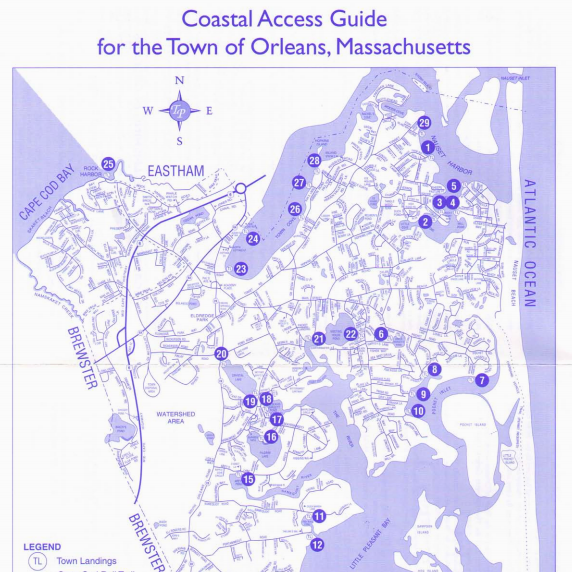
Mill Pond Landing Restoration
Orleans has twenty-nine landings and coastal access points within its boundaries. Proximity to spectacular waterways and shorelines is one of the defining features of our town.
Article 21, on page 70 of the Warrant, asks voters to approve $350,000 for the restoration of Mill Pond Landing, a popular boating and walking site that abuts a large swath of conservation land. Years of storm erosion have compromised this pond and waterway, and have reduced the size of the parking area and boat ramp. The restoration project will improve and shore up the landing to protect it from further damage.
At last fall’s meeting, the article proposing this renovation narrowly failed. Throughout the ten-minute discussion with four speakers, there seemed to be some confusion about who should be paying for the restoration of town landings.
Answer: It is the town’s responsibility to keep public roads and the landings in good repair. Supported unanimously by both the Orleans Select Board and Finance Committee, this article requires a three-quarters vote to pass because it wasn’t included in the Capital Improvements Plan as a Capital Project.
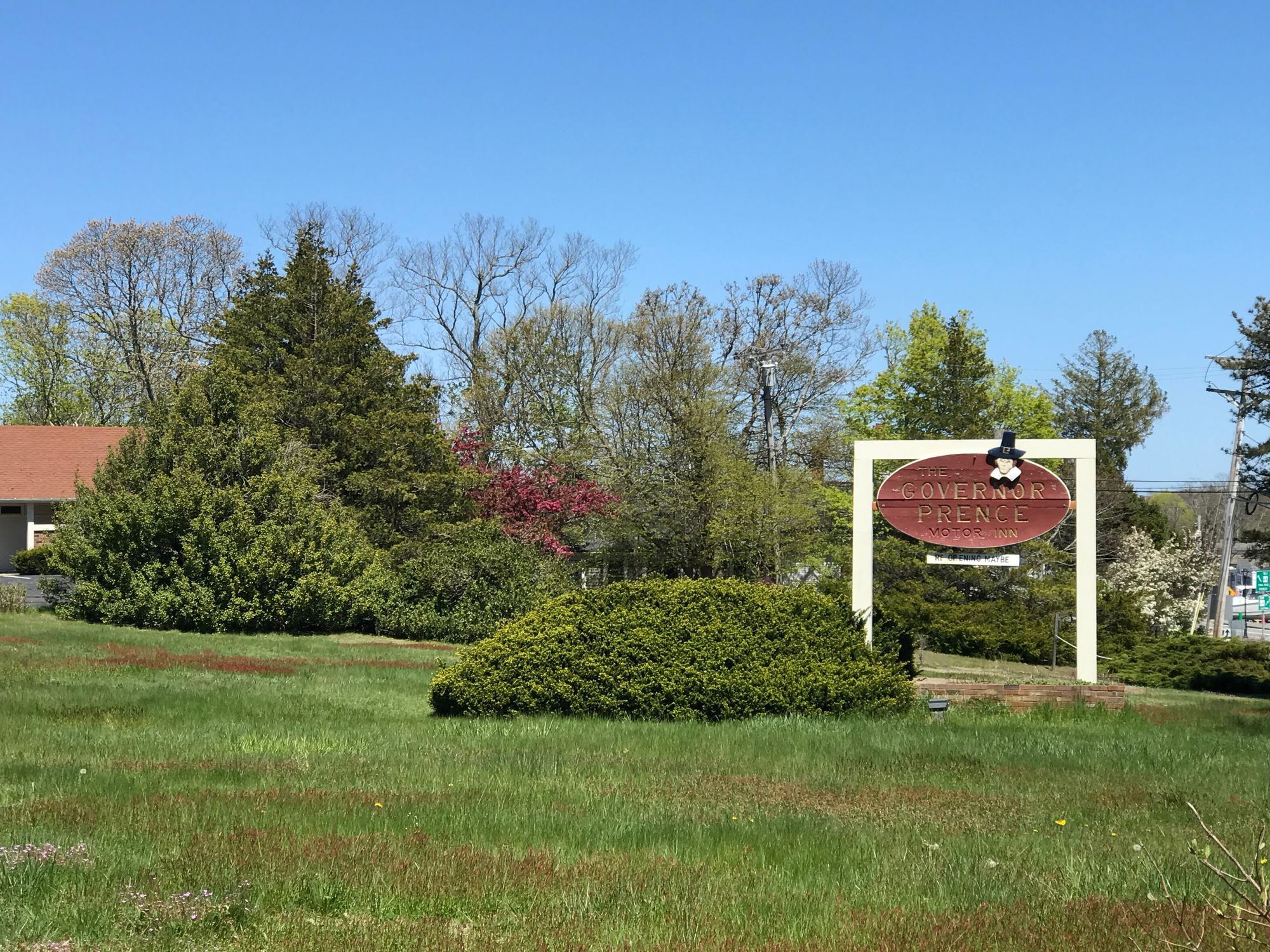
The Governor Prence Properties
Back in October, Orleans voters approved $15,000 for a feasibility study to explore potential uses for the Governor Prence Inn properties, a five-acre parcel consisting of two properties, 66 and 76 Route 6A. The Affordable Housing Trust Board contributed an additional $15,000 to help fund the study.
Now that the study is complete, Orleans voters are being asked to approve the purchase of the properties for $2.925 million.
The Select Board voted unanimously in favor of the purchase and the Finance Committee was nearly unanimous, voting 7 for, 1 against. Both groups describe the importance of controlling the future of this prime piece of real estate. “The basic message is to secure the property,” Select Board Chair Kevin Galligan told the Cape Cod Chronicle.
The purchase buys time for a town conversation. As the Select Board states in its letter of support: “Should the site serve year-round residents, provide jobs, be a magnet tourist attraction, provide housing or a blend of uses, incorporate recreation or a community center? The question for the May Town Meeting is whether we think enough of the property’s future potential to make the initial purchase, without knowing its final use.”
Article 23, beginning on page 71 of the Warrant, asks voters to “appropriate or borrow” $2.45 million for the purchase, which includes $100,000 for design services related to building demolition and site restoration, with an additional $25,000 provided by the town for property insurance and maintenance, and $450,000 pledged by the Orleans Affordable Housing Trust. The measure requires a three-quarters vote to pass. If voters don’t support the purchase, the two properties will likely go on the open market this summer.
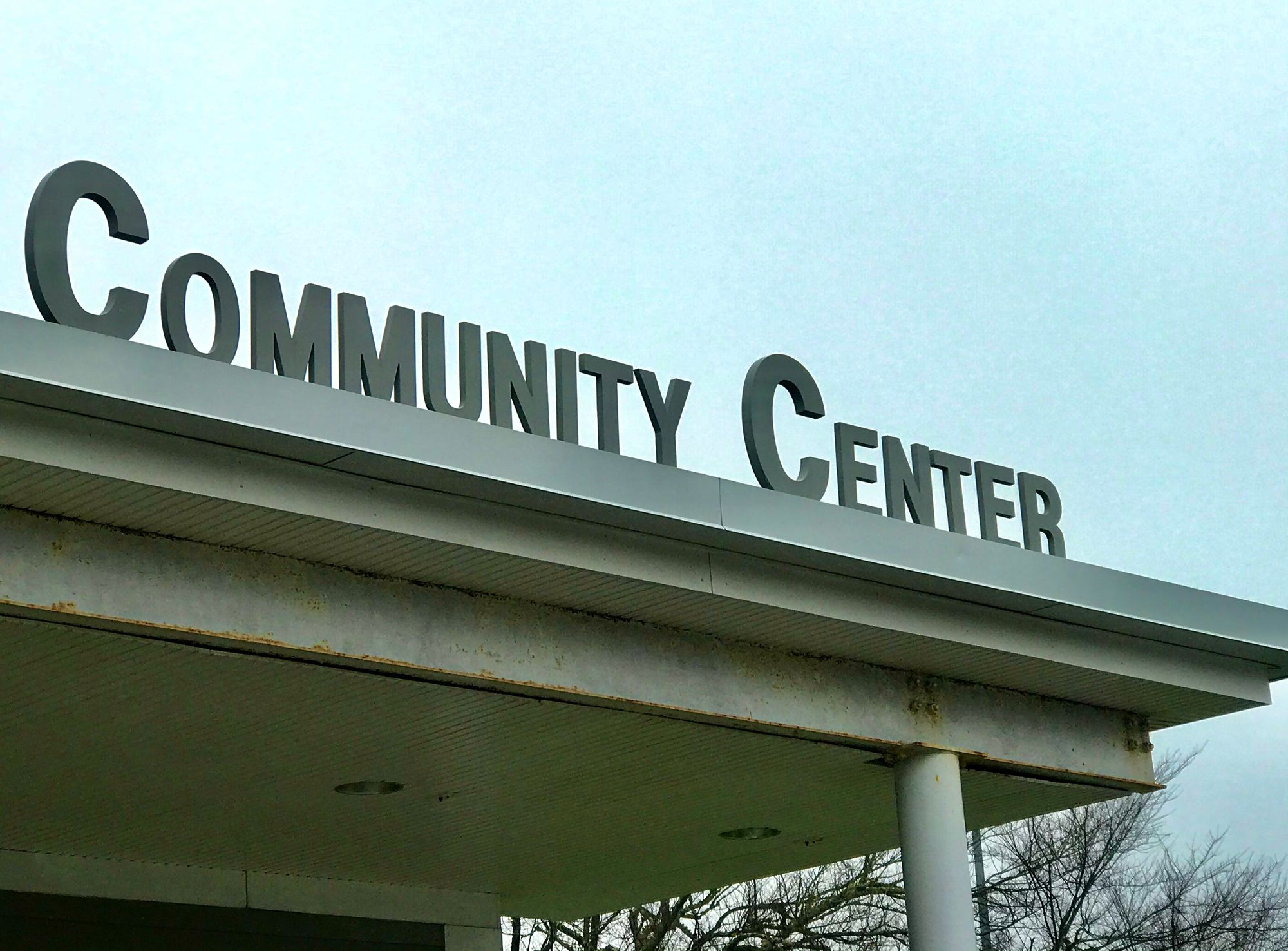
A Community Center Study?
The longest and most impassioned debate at last fall’s meeting — ten speakers, twenty minutes — was over an article proposing a community center feasibility study. Like all feasibility study proposals, it exposed undercurrents of strong feeling. If Orleans could afford a wonderful new community center, many felt, who wouldn’t want one?
The Cape towns with community centers rely on them as hubs of activity and connectedness between all age groups. In Chatham and Harwich, these centers offer lectures, concerts, movies, exercise classes, children’s programs, and adult education classes.
Attractive as the idea may be, Orleans voters weren’t ready to approve last fall’s proposed $75,000 feasibility study, which needed 392 votes to meet the three-quarters threshold required to pass, and received only 297. In a year of economic hardship and uncertainty, frugality prevailed.
Now, the potential acquisition of the Governor Prence Inn properties could encourage voters to reconsider.
Article 24, on page 73 of the Warrant, is a proposal for a less expensive study — $35,000 — that would include a report of "community needs" for people of all ages, abilities, and interests, and look at potential programming and uses for the facility, site requirements, building size, staffing and operational needs, and cost projections that could be used for capital planning purposes. The proposed study received unanimous support from the Select Board. The Finance Committee voted 7–1 not to recommend it, with concerns about the timing in conjunction with other town development initiatives, as well as the ambitious scope of the study for the proposed fee. The proposal needs a three-quarters vote to pass.
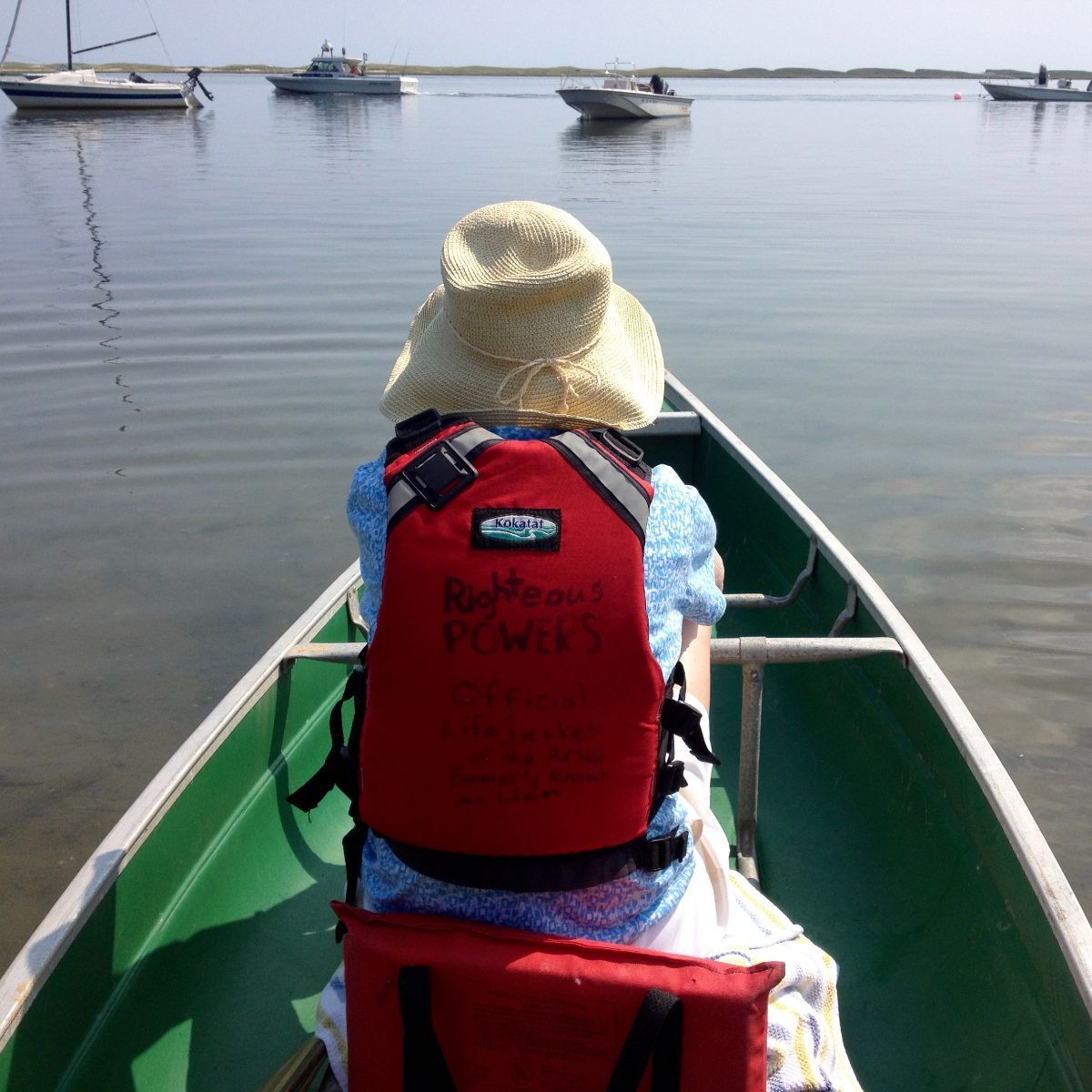
Property Tax Break for Seniors
Many seniors in Orleans struggle to keep up with rising property taxes. A proposal to accept and fund Massachusetts General Law 59, section 5K, which offers a property tax reduction for residents over 60 years of age in exchange for volunteer services rendered to the town, is the subject of Article 25. The program, versions of which are already offered to seniors in need in Brewster and Wellfleet, provides no more than a $1,500 reduction per volunteer, per year, and cannot exceed a total of $15,000 per year in reductions. If approved, the program’s precise rules and procedures would be designated by the Orleans Select Board, which supported this proposal unanimously. The Finance Committee voted 7 for, 1 against. It needs a simple majority to pass.
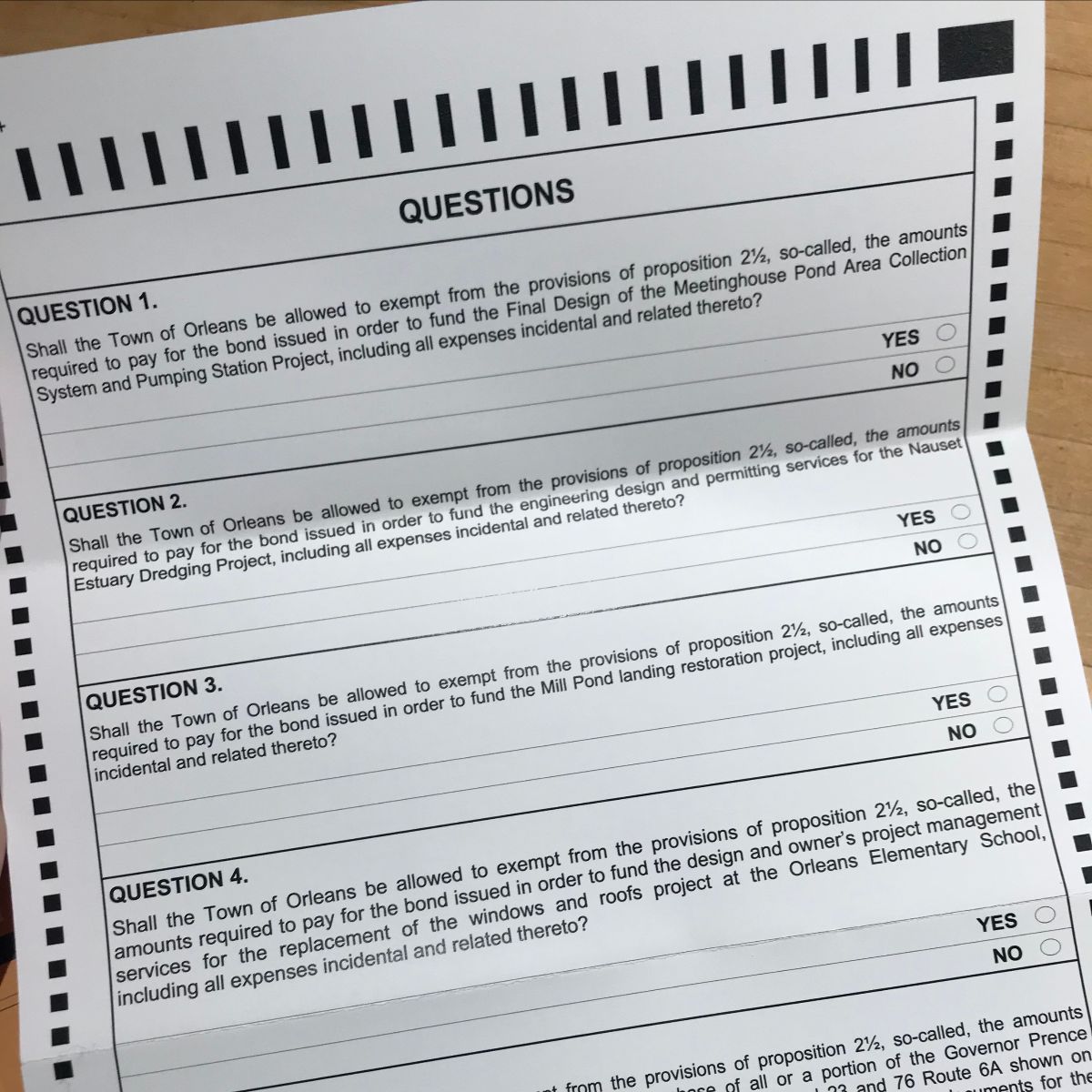
Annual Election on May 25
There are a few more votes to cast! Don't forget about the Orleans Annual Election, just days after Town Meeting. You can still register to vote until tomorrow, Saturday, May 15, online. Mail-in ballots have been sent out. Cast your ballots in person on Tuesday, May 25, at the Council on Aging, 150 Rock Harbor Road. Doors will be open between 9:00 a.m.–7:00 p.m. Social distancing and masks required.
This edition of EXIT 89 was researched and written by journalists and authors Martha Sherrill and Emily Miller. Editing and tech support is provided by Kazmira Nedeau. It is a prototype that is looking for an audience. The Advisory Board currently includes Lynn Bruneau and Elaine Baird. We are all residents of Orleans.
Learn more about EXIT 89.
